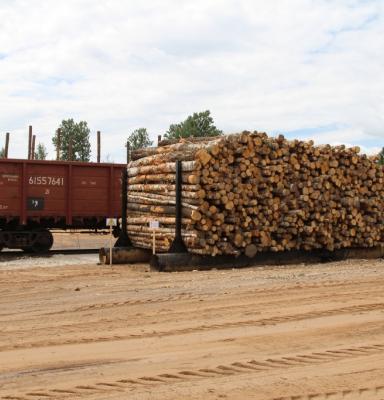
FSC & EUTR
The EU Timber Regulation (EUTR) came into effect in March 2013, with the aim of preventing sales of illegal timber and timber products in the EU market. Now, any actor who places timber or timber products on the market for the first time must ensure that the timber used has been legally harvested and, where applicable, exported legally from the country of harvest.
The EUTR is relevant to thousands of companies of all sizes that are producing timber domestically or importing timber into the EU. It covers a wide range of timber products, including plywood, veneer, furniture, and paper (except its recycled components and printed media) and comprises three main obligations:
- Timber accompanied by a Forest Law Enforcement, Governance, and Trade (FLEGT) or Convention on International Trade in Endangered Species (CITES) licence will be accepted as legal. In all other cases, operators must exercise due diligence when they introduce imported and domestic timber or timber products on the EU market;
- It prohibits the placing of illegally-harvested timber, and products made from illegally-harvested timber, on the EU market, whether the timber is of domestic or imported origin; and
- Traders (those after the operators in the supply chain) need to keep records of their suppliers and customers (except end consumers). In this way, the operators can always be traced.
FSC has worked to ensure that all components of FSC certification – and our standards – align with the EUTR. As such, actors practicing due diligence can use FSC certification as a key element of risk assessment and mitigation. To support this, we have produced guidance materials on the EUTR (available below) and FSC national offices have helped actors and authorities to understand how FSC certification can be used as a tool for meeting requirements.
FSC also played an active part in the first EUTR review process and is in close contact with the European Commission and the EUTR/FLEGT Committee of EU Member States.
PLEASE NOTE: trading in FSC-certified materials does not result in exemption from the due diligence required by the EU Timber Regulation. For more details please read the EU Timber Regulation: Implementation Guide in the file section below, and our article on FSC Calls on Companies to Ensure EUTR Due Diligence for Timber Imports.
FSC & FLEGT
FSC & FLEGT voluntary partnership agreements
In 2003, the EU adopted its Forest Law Enforcement, Governance and Trade (FLEGT) Action Plan that focused on fighting illegal harvesting, particularly in tropical countries, through FLEGT voluntary partnership agreements (VPAs).
VPAs are legally binding trade agreements between the EU and a timber-producing country outside the EU. They outline commitments to ensure relevant forest legislation is enforced in the exporting country and acknowledge that EU assistance may be required. Like the EUTR, VPAs are a key tool used by FLEGT to help encourage the legal harvesting of timber.
When relevant in VPA countries, FSC certification can help countries implement the FLEGT objectives and ensure FLEGT contributes more directly to responsible forest management. Currently, more than 5.5 million hectares in countries that have ratified VPAs are FSC certified.